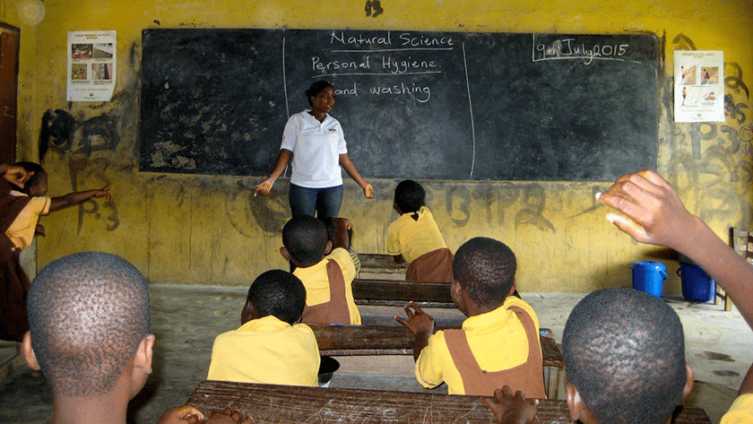In a world where young people are retreating more and more into virtual unreality, the teaching profession has become more important than it ever was.
It is teaching that keeps it real – teaching that keeps young people alive.
It is the talk of the town – when you say the word “future”, you hear “robots”.
Artificial intelligence is rapidly growing, and that fear of losing your job to technology has become very real, but the most important thing is a person.
A person who incites your curiosity and feeds your curiosity; and machines cannot do that in the same way that people can.
My dad, John-Paul, a computer keyboard wizard and instructor himself who taught in a business college, Manifold Tutorial College, Accra, to be precise, for a period of fifteen years, believes that while technology can solve many societal problems, it is not as simple as handing it over to a computer when it comes to teaching and learning. I asked my dad why?
And he explained that he once introduced his students to a computer keyboard training software; Mavis Beacon, so that he could save time and energy for some other subjects he would handle in his department.
According to him, the Mavis Beacon Software could not explain to the students certain important and advanced sessions of their keyboard lessons.
The software lacked the ability to elucidate types of business letter layout, appropriate font styles and sizes, and spacing to use for what correspondence.
He concluded that the students were scared that they would not perform well in their exams, especially, external ones and eventually halted the Mavis Beacon in the college.
Gin Tan, a former English teacher at the Mont Kiara International School in Kuala Lumpur, Malaysia, believes teamwork further educates students, and that this goes way beyond the classroom.
Tan in her contribution says, “Teachers are not only there to support and gauge the needs of students in terms of their skill level and basic knowledge – teachers create situations for students to work together and collaborate. With teamwork comes social interaction between students, teachers, administrators and parents”.
As the late psychologist Albert Bandura explains in the Bandura Theory, children learn in social environments by observing and imitating the behaviour and influence of others.
Individuals need to feel a sense of belonging and have meaningful connections, all of which a machine cannot provide.
And the fact is, teachers are mentors. They are supporters. They are our inspirations. Inside and outside of the classroom for informative excursions, they are there for us. Better yet, they entertain us.
So my cherished readers imagine, living in a world where teachers are replaced with computers how are we going to cope with humanly interactive absences.
****
About the author; Johnpaul Eyiram is a year 6 pupil of North Hills International School.
Latest Stories
-
DAMC, Free Food Company, to distribute 10,000 packs of food to street kids
59 minutes -
Kwame Boafo Akuffo: Court ruling on re-collation flawed
1 hour -
Samuel Yaw Adusei: The strategist behind NDC’s electoral security in Ashanti region
1 hour -
I’m confident posterity will judge my performance well – Akufo-Addo
2 hours -
Syria’s minorities seek security as country charts new future
2 hours -
Prof. Nana Aba Appiah Amfo re-appointed as Vice-Chancellor of the University of Ghana
2 hours -
German police probe market attack security and warnings
2 hours -
Grief and anger in Magdeburg after Christmas market attack
2 hours -
Baltasar Coin becomes first Ghanaian meme coin to hit DEX Screener at $100K market cap
3 hours -
EC blames re-collation of disputed results on widespread lawlessness by party supporters
3 hours -
Top 20 Ghanaian songs released in 2024
4 hours -
Beating Messi’s Inter Miami to MLS Cup feels amazing – Joseph Paintsil
4 hours -
NDC administration will reverse all ‘last-minute’ gov’t employee promotions – Asiedu Nketiah
4 hours -
Kudus sights ‘authority and kingship’ for elephant stool celebration
4 hours -
We’ll embrace cutting-edge technologies to address emerging healthcare needs – Prof. Antwi-Kusi
5 hours

